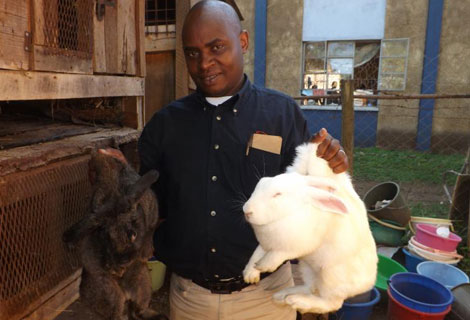×
The Standard e-Paper
Fearless, Trusted News
 |
| Peter Macharia holding some of his rabbits at his Thika farm. [Photo: Kamau Maichuhie/Standard] |
Rearing rabbit is one of the least practised agricultural activities in Kenya. In fact, for a long time, it has been seen as a hobby for boys thus the reason why it continues to be shunned to date.
However, one man in Thika is smiling all the way to the bank thanks to this least practised farming activity that only a handful of Kenyans have embraced.